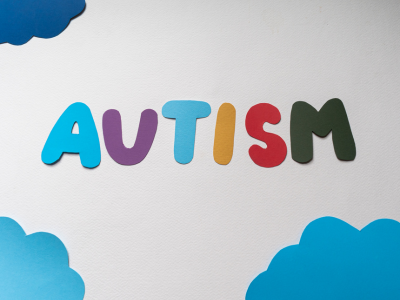For decades, autism was mainly associated with children, but research shows that many adults grew up without answer. Some only realize in their 20s, 30s, or even 50s that they may be on the spectrum. Being autism diagnosed late does not change the past, but it can provide clarity, relief, and direction.
For many, an evaluation explains lifelong challenges with work, relationships, or social situations. With more awareness, better tools, and services like counseling therapy and personality assessments, adults now have easier ways to understand themselves and get support.
The Late-Diagnosis Wave: Why Adults Seek Clarity Now
In recent years, many adults have seen that their struggles were not failures, but signs of autism. A late diagnosis may not change the past, but it can bring clarity and make sense of lifelong experiences.
Why more adults are getting diagnosed today:
- Awareness and acceptance – Society is beginning to see autism as a different way of thinking rather than something “wrong.”
- Improved diagnostic tools – Professionals now better recognize autism in women, minorities, and individuals who were missed as children.
- Access to care – Telehealth and online services make evaluations easier to schedule and afford.
- Cultural shifts – More people are valuing self-understanding and openly discussing mental health.
For many adults, choosing an autism evaluation is a way to take control of their lives and better understand lifelong challenges.
Telehealth Makes Evaluations More Accessible
One of the biggest shifts in recent years is the rise of telehealth evaluations. In the past, long waitlists, travel time, and a lack of specialists often discouraged adults from seeking answers. Now, many clinics provide online autism assessments that are just as effective and far more convenient.
Advantages of telehealth evaluations:
- Flexible scheduling that fits into busy lives
- Access to experts who may not be available locally
- The comfort of being in a familiar environment during testing
Virtual vs. In-Person Evaluations
| Evaluation Type | Advantages | Considerations |
| Virtual (Telehealth) | Flexible scheduling, greater access to specialists, and home comfort | Risk of missing subtle nonverbal cues, possible technical difficulties |
| In-Person (Traditional) | Direct observation, standardized diagnostic tools like ADOS-2 | Long travel times, longer waitlists, and less flexibility |
For many adults, telehealth has removed the biggest barriers to seeking an autism evaluation.
The Benefits of a Late Diagnosis

Some adults worry that getting autism diagnosed late is “too late to matter.” The truth is that an evaluation can change how someone sees themselves and how others understand them.
Life-changing benefits include:
- Self-Understanding – Gaining clarity about why certain challenges exist and recognizing personal strengths.
- Access to Resources – Access to therapy, support groups, workplace help, and community programs.
- Better Relationships – Loved ones often gain new insight into communication and emotional needs.
- Mental Health Support – Many adults report reduced anxiety, isolation, or self-blame after diagnosis.
Rather than being a label, an autism evaluation for adults provides a framework for living with greater confidence and balance.
Signs That an Evaluation May Be Right for You
Many adults have lived for decades without realizing they are autistic. If you’ve ever wondered whether an evaluation could help, these signs may sound familiar:
- Frequent struggles with social interactions or feeling misunderstood
- Strong sensory sensitivities to sound, light, textures, or crowds
- Anxiety or exhaustion after social situations
- Dependence on routines and difficulty with unexpected changes
- Ongoing challenges with organization, communication, or emotional regulation
Experiencing several of these signs does not mean you are autistic, but it may suggest that an autism evaluation for adults could provide helpful clarity.
Understanding the Evaluation Process
The evaluation process can feel scary if you don’t know what to expect. But it is made to be clear and supportive, helping professionals understand your experiences.
Typical steps include:
- Initial Consultation – Collecting medical, developmental, and personal history.
- Standardized Assessments – Using diagnostic tools like ADOS-2 and questionnaires.
- Behavioral Observation – Assessing problem-solving, communication, and social interactions.
- Feedback Session – Reviewing results and discussing next steps with a professional.
- Ongoing Support – Receiving referrals for therapy, counseling, or support at work.
Knowing the steps helps many adults feel more prepared and confident in seeking an evaluation.
Why 2025 Is a Turning Point
This year marks a major cultural shift in how autism in adults is viewed and supported.
Key changes include:
- Wider public awareness campaigns reducing stigma
- Expanding insurance coverage in many regions
- Employers recognize the strengths of workers who think differently
- Hybrid models combining telehealth and in-person assessments
In 2025, getting an autism evaluation for adults will be more accepted and more accessible than ever before.
How a Diagnosis Impacts Daily Life
An autism evaluation is not just about a medical diagnosis, it is about real changes that improve daily living.
At Work
- Access to support to improve performance
- Better communication with supervisors and colleagues
- Ability to leverage strengths like focus, detail orientation, and memory
At Home
- Stronger relationships through improved communication
- Relief from years of self-doubt or confusion
- Healthier routines that reduce stress
With a diagnosis, adults can better understand their unique strengths and challenges in all areas of life.
Common Myths About Autism Evaluation for Adults
Many adults delay or avoid evaluation because of misconceptions. Here are some of the most common myths:
- Myth 1: Autism can only be diagnosed in children
- Myth 2: Adults will not benefit from a late diagnosis
- Myth 3: Evaluations are too complicated to get
- Myth 4: A diagnosis will limit opportunities
In reality, evaluation often leads to empowerment, access to resources, and stronger self-acceptance.
The Role of Community and Support
Beyond the diagnosis itself, one of the greatest benefits is access to the community. Support groups and local networks can connect adults with others who share similar experiences. This sense of belonging helps reduce feelings of isolation and builds resilience.
Counseling therapy and coaching can also help adults build new skills for communication, stress management, and navigating work or family challenges. Many find that combining evaluation with ongoing support creates the best path forward.
Take Control of Your Story With Professional Support

In 2025, more adults than ever are choosing to seek an autism evaluation as a way to better understand themselves and unlock opportunities for support. If you have been living with unanswered questions, now is the time to take the first step.
At PATS Consultants, we provide professional, compassionate evaluations designed to give you clarity and confidence. Do not let another year pass in uncertainty. Contact us today and start your journey toward self-understanding and empowerment.



